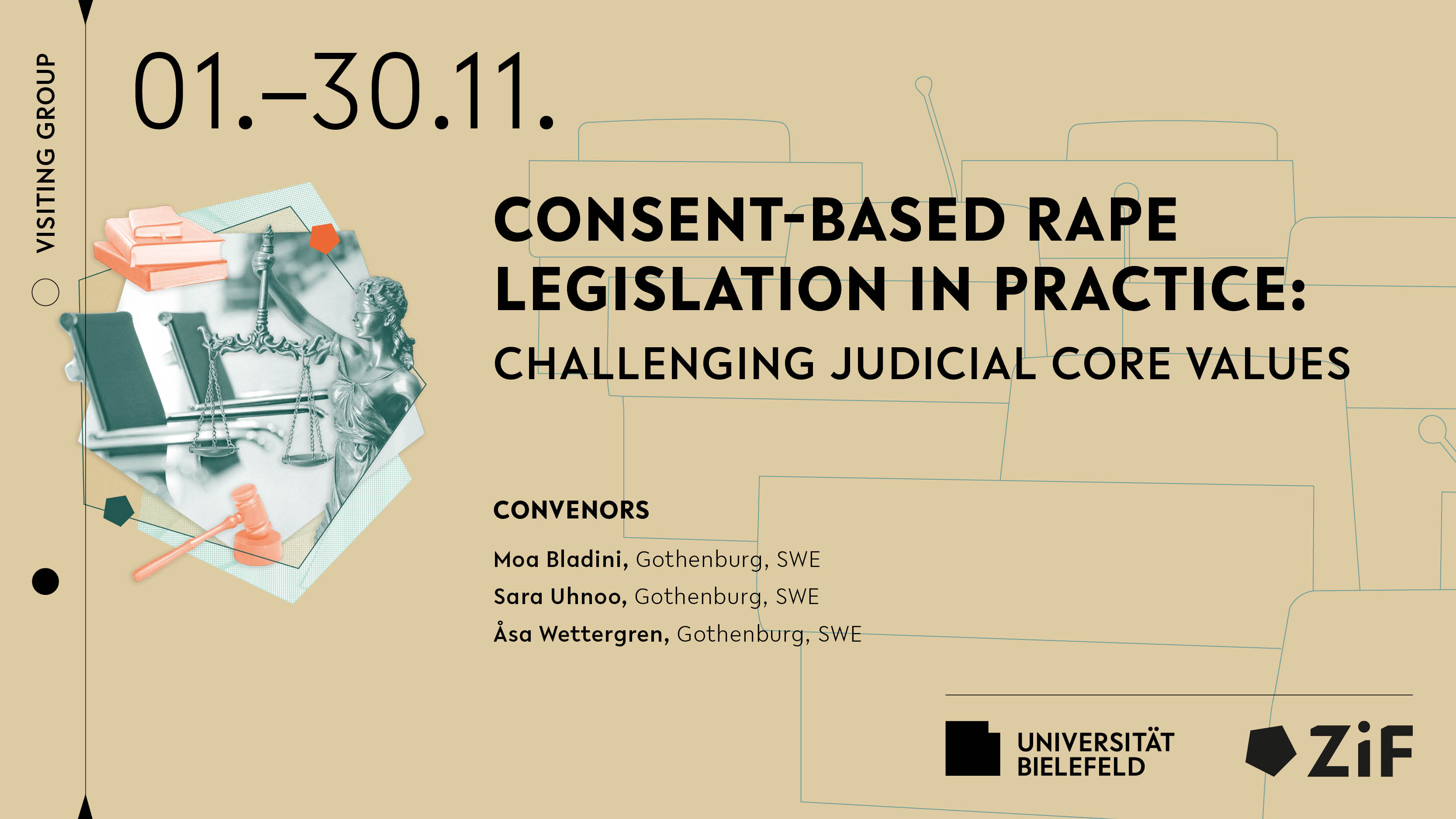Zentrum für interdisziplinäre Forschung
Rationality, Objectivity, and Autonomy in the Legal Sphere
In November, Professor Åsa Wettergren and Associate Professor Sara Uhnoo from the Department of Sociology and Work Science, and Moa Bladini, Associate Professor from the Law Department at Gothenburg University, Sweden, worked at ZiF as the ZiF Visiting Group “Consent-Based Rape Legislation in Practice: Challenging Judicial Core Values”. In their research project "Rape or consent? Effects of the new rape legislation on legal reasoning and practice" (financed by the Swedish Riksbankens Jubileumsfond 2020-2023) they had collected loads of data and with a book contract landed at Bristol University Press they needed time to begin the analysis and start writing. The book will be published in June 2025 and has the title "Challenging Judicial Core values – Consent Based Rape legislation in Practice". In an interview on th ZiF’s Blog they talk about the progress and the challenges of their project.

(Design: Universität Bielefeld/Büro Paschetag, Corinna Mehl)
They state that one problem with the Western judicial system is that it rests on a modern conventional separation of emotion and cognition, referring emotions to the private or psychological sphere, and often associated with irrational and non-professional behavior. In the emotion-sociological perspective this is called a rationalist way of organizing and managing emotions, or a rationalist emotional regime.
But rationality, they explain, is dependent on both cognitive and emotional information and motives, but the emotions of rationality must be made transparent and critically reflected upon. Individual autonomy, if it exists at all in a relational world, is always bounded and context dependent. The researchers believe that it is important that the law learns from social science where the area of sexuality, gender, and power has been researched for decades. After all, consent-based rape legislation is an outcome of this research. Moreover, they state, the law needs to revise the core concepts of objectivity, rationality, and autonomy, both in terms of how these are incorporated by the legal actors (who see themselves as being objective, rational and autonomous) and in relation to the legal subjects before the court.
In this perspective objectivity, as is well-known in social science, is not a position but a critically reflexive activity and a process of constant intersubjective synchronization.
Read the full interview here.